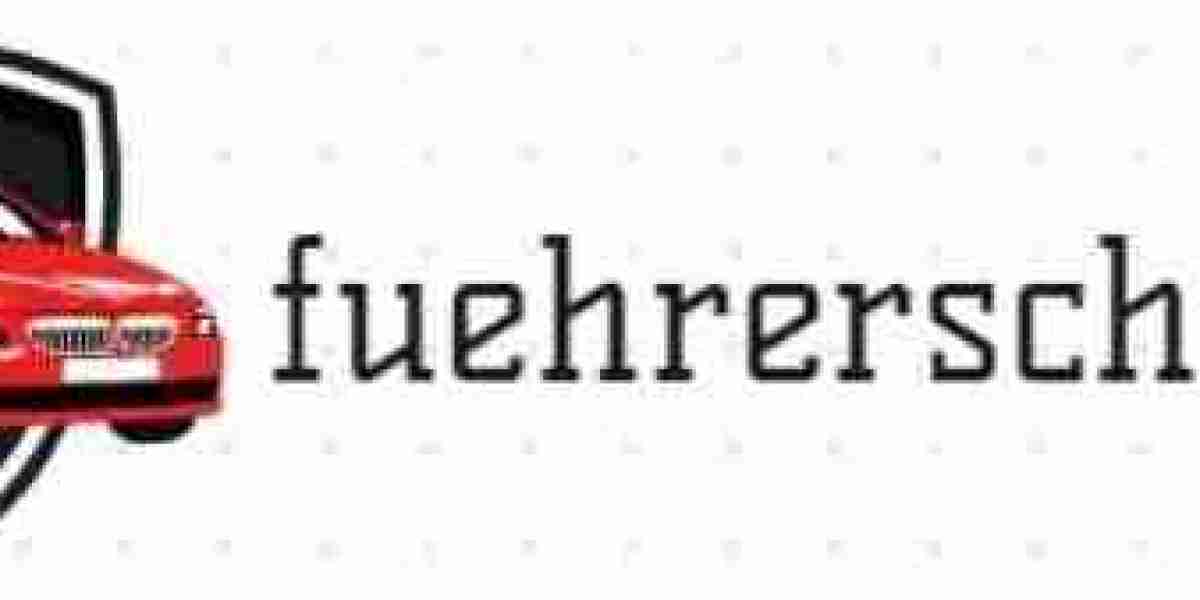
Buy a Driving License in Germany: Understanding the Legal Process and Avoiding Illegal Shortcuts
The question "Can I buy a driving license in Germany?" typically develops, particularly amongst those new to the country or intimidated by the prospect of strenuous testing. While the phrasing might recommend an easy deal, it's important to right away clarify that acquiring a driving license in Germany in the actual sense is prohibited and carries serious consequences. There is no legitimate method to just buy a license without undergoing the essential training and passing the needed assessments.
This post will look into the complexities of obtaining a driving license in Germany lawfully. It will discuss the proper procedures, the expenses involved, and why trying to "buy" a license through illicit means is not just against the law however also profoundly hazardous and eventually futile. Comprehending the legitimate course is important for ensuring roadway safety and getting a legitimate driving license recognized within Germany and beyond.

The Reality: Obtaining a Driving License, Not Buying It
Rather of "buying" a license, the accurate term is obtaining a driving license. Germany, renowned for its high driving standards and strict policies, has a structured procedure created to guarantee all drivers are competent and well-informed. This procedure includes extensive training, both theoretical and useful, followed by extensive screening to evaluate a candidate's readiness to run a vehicle securely on public roads.
The German driving license system is developed upon the concept of competence-based licensing. It's not about just paying a fee; it's about showing that you have the necessary abilities, understanding, and accountable attitude to be a safe driver. This approach substantially adds to Germany's fairly low mishap rates compared to some other nations.
Why "Buying" a License is a Dangerous Misconception
The concept of purchasing a driving license typically comes from a misunderstanding or a desire to circumvent the effort and time required for proper training. However, trying to obtain a license through unlawful channels, such as acquiring counterfeit files or paying off authorities, carries substantial dangers and is highly discouraged for several vital reasons:
Legality and Criminal Penalties: Attempting to obtain a driving license fraudulently is a criminal offense in Germany. People caught taking part in such activities can face serious charges, consisting of hefty fines, imprisonment, and a criminal record. This can have long-lasting effects affecting future work, travel, and residency licenses.
Void License and Insurance Issues: A fraudulently acquired driving license is not acknowledged as legitimate. If captured driving with a phony license, you will be thought about driving without a license. This leads to further legal repercussions and can invalidate your car insurance. In the event of a mishap, you will be held totally liable for damages, as your insurance will likely be space.
Risk to Public Safety: Bypassing appropriate training and screening endangers not only your own safety but also the security of all other roadway users. Driving requires a complex set of skills, knowledge of traffic laws, and responsible decision-making. Individuals who have actually not gone through proper training are ill-equipped to deal with the obstacles of driving, increasing the threat of accidents and possibly triggering severe damage or fatalities.
Ethical Concerns: Engaging in unlawful activities undermines the integrity of the licensing system and reveals an outright neglect for the guideline of law. It contributes to corruption and wears down rely on organizations created to make sure public security.
The Legitimate Path: Steps to Obtaining a German Driving License
The proper and only safe method to get a driving license in Germany is to follow the recognized legal procedure. This procedure, while demanding, is developed to equip you with the needed abilities and understanding to be an accountable and safe driver. Here are the crucial actions involved:
1. Registration in a Driving School (Fahrschule):
- You need to sign up with an officially recognized driving school. Picking a credible school is vital as they will guide you through the whole process.
- Driving schools offer courses in German, and increasingly, in English, especially in larger cities. Make sure the school uses direction in a language you are comfy with.
- Upon registration, you'll get research study materials and be set up for mandatory theory lessons.
2. Theory Lessons and Examination:
- Theory lessons cover German traffic laws, road signs, safe driving practices, vehicle innovation, and environmental factors to consider. The number of compulsory lessons depends on the license classification you are looking for. For a standard car license (Class B), it usually involves around 12 double lessons of fundamental theory and additional specific lessons.
- After completing the mandatory lessons, you should pass a computer-based theory test carried out by a main testing company (TÜV or DEKRA).
- The theory test includes multiple-choice questions and video-based concerns. You must achieve a minimum passing score to proceed to useful training.
3. Practical Driving Lessons:
- Once you pass the theory test, you can begin practical driving lessons with your driving instructor.
- The variety of practical lessons required varies greatly depending on specific learning speed, prior driving experience (if any), and the instructor's assessment of your progress.
- Mandatory special driving lessons are included, covering motorway driving, night driving, and driving beyond metropolitan locations.
- Practical lessons are important for developing driving abilities, understanding traffic scenarios, and finding out to apply the theory understanding in real-world situations.
4. Practical Driving Examination:
- After your driving instructor deems you all set, you will be arranged for the useful driving test.
- The dry run is carried out by an examiner from TÜV or DEKRA, accompanied by your driving instructor.
- The test usually lasts around 45-60 minutes and examines your driving capability in different traffic circumstances, including city driving, rural roadways, and possibly motorway driving.
- The inspector will examine your overall driving skills, adherence to traffic laws, smooth vehicle control, observation skills, and safe driving behavior.
5. License Issuance:
- If you successfully pass both the theory and practical evaluations, you will get your German driving license.
- The license is typically issued soon after passing the practical test, often on the same day or within a couple of days.
- You will receive a probationary driving license (Probezeit) for the first two years. Throughout this duration, stricter guidelines apply, especially concerning traffic offenses.
Expenses Associated with Obtaining a Driving License
While you can not "buy" a license outright, there are significant costs connected with the legitimate procedure. Comprehending these expenses can help you spending plan accordingly. These expenses can differ depending on the driving school, your knowing speed, and test fees, however generally consist of:
- Driving School Enrollment Fee: This is a one-time registration fee charged by the driving school.
- Theory Lesson Fees: Fees are charged per theory lesson.
- Learning Materials: Costs for textbooks, online learning platforms, and practice tests.
- Practical Lesson Fees: Fees are charged per practical driving lesson. This is frequently the most substantial cost component, as the number of lessons needed varies.
- Presentation for Theory Test Fee: A cost to present yourself for the theory test at TÜV/ DEKRA.
- Presentation for Practical Test Fee: A cost to present yourself for the practical test at TÜV/ DEKRA.
- License Issuance Fee: A cost charged by the authorities for releasing the driving license.
- Eye Test and First Aid Course: These are obligatory prerequisites and involve different charges.
List of Costs (Approximate Range):
- Driving School Enrollment: EUR50 - EUR200
- Theory Lessons (Basic Course): EUR200 - EUR400
- Learning Materials: EUR50 - EUR100
- Practical Lessons (per lesson): EUR40 - EUR70 (Number of lessons differs substantially)
- Theory Test Fee: EUR25 - EUR30
- Practical Test Fee: EUR120 - EUR150
- License Issuance Fee: EUR40 - EUR50
- Eye Test: EUR20 - EUR30
- First Aid Course: EUR30 - EUR50
Important Considerations:
- Time Commitment: Obtaining a German driving license needs a substantial time commitment, generally ranging from a couple of weeks to several months, depending upon specific learning speed and lesson schedule.
- Language Proficiency: While some driving schools provide English instruction, a standard understanding of German can be advantageous, especially for navigating theoretical materials and traffic check in day-to-day driving.
- Persistence and Perseverance: The procedure can be challenging, and it needs perseverance and perseverance. Do not be dissuaded by preliminary problems. Consistent effort and a favorable mindset are essential to success.
In Conclusion:
While the idea of "purchasing" a driving license may appear appealing to those seeking a fast and easy option, it is essential to comprehend that such attempts are prohibited, unsafe, and eventually detrimental. The legal process for acquiring a German driving license is created to make sure road safety and produce proficient drivers. By registering in a trusted driving school, vigilantly studying, practicing efficiently, and sticking to the established procedures, you can successfully obtain a valid German driving license and take pleasure in the liberty and duty of driving legally and safely. Remember, your security and the security of others on the roadway are vital, and appropriate training is the only genuine course to accomplishing this.
Often Asked Questions (FAQs)
Q: Is it possible to get a German driving license without going to driving school?A: No, registration in a recognized driving school is necessary in Germany. Driving schools offer vital theoretical and practical training and guide you through the whole licensing process.
Q: Can I use my foreign driving license in Germany?A: Depending on your country of origin, you might be able to use your foreign driving license in Germany for a restricted duration (typically 6 months). After this period, you will normally require to obtain a German driving license. For licenses from EU/EEA countries, acknowledgment is typically simple. For licenses from non-EU/EEA countries, you may require to undergo a conversion procedure, which may involve theory and/or practical tests.
Q: How long does it require to get a German driving license?A: The duration differs, but it normally takes between 2 to 6 months. Factors influencing the timeframe include your knowing speed, schedule of driving lessons, and waiting times for tests.
Q: What happens if I fail the theory or dry run?A: If you stop working either test, you are permitted to retake it. There is generally a waiting duration before you can retake the test, echten führerschein kaufen erfahrungen (hop over to here) and you may need additional lessons before attempting the practical test once again. There is no limit to the variety of times you can retake the tests, however each effort includes extra costs.
Q: Can I get a driving license in Germany if I don't speak German?A: While most driving schools primarily operate in German, some schools in larger cities offer courses and instruction in English. It's important to find a driving school that can offer direction in a language you understand. The theory test is offered in numerous languages, consisting of English.
Q: What is the probationary duration (Probezeit) for new drivers in Germany?A: New drivers in Germany are subject to a two-year probationary period (Probezeit). During this period, more stringent rules apply, and traffic infractions bring heavier penalties. Major offenses during the Probezeit can cause obligatory involvement in refresher courses or even cancellation of the driving license.
Q: What is the minimum age to get a driving license in Germany?A: The minimum age for a basic car driving license (Class B) in Germany is 18 years old. Nevertheless, "accompanied driving" (Begleitetes Fahren mit 17) is possible from the age of 17, enabling young drivers to drive with a designated grownup manager.
Q: Is it more expensive to get a driving license in a huge city or a rural location?A: Driving school costs and lesson expenses can sometimes be slightly greater in larger cities due to higher operating expense. Nevertheless, the difference is typically not considerable. Availability of English-speaking driving schools might be much better in bigger cities.






